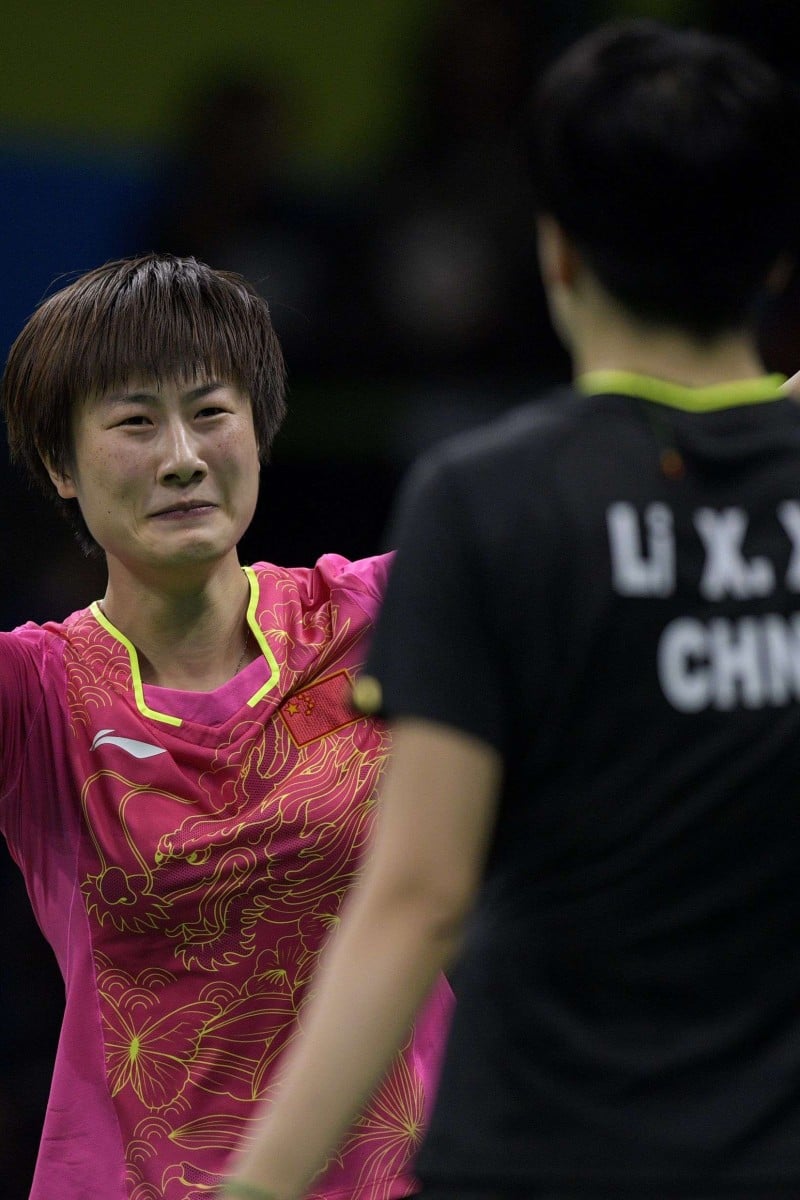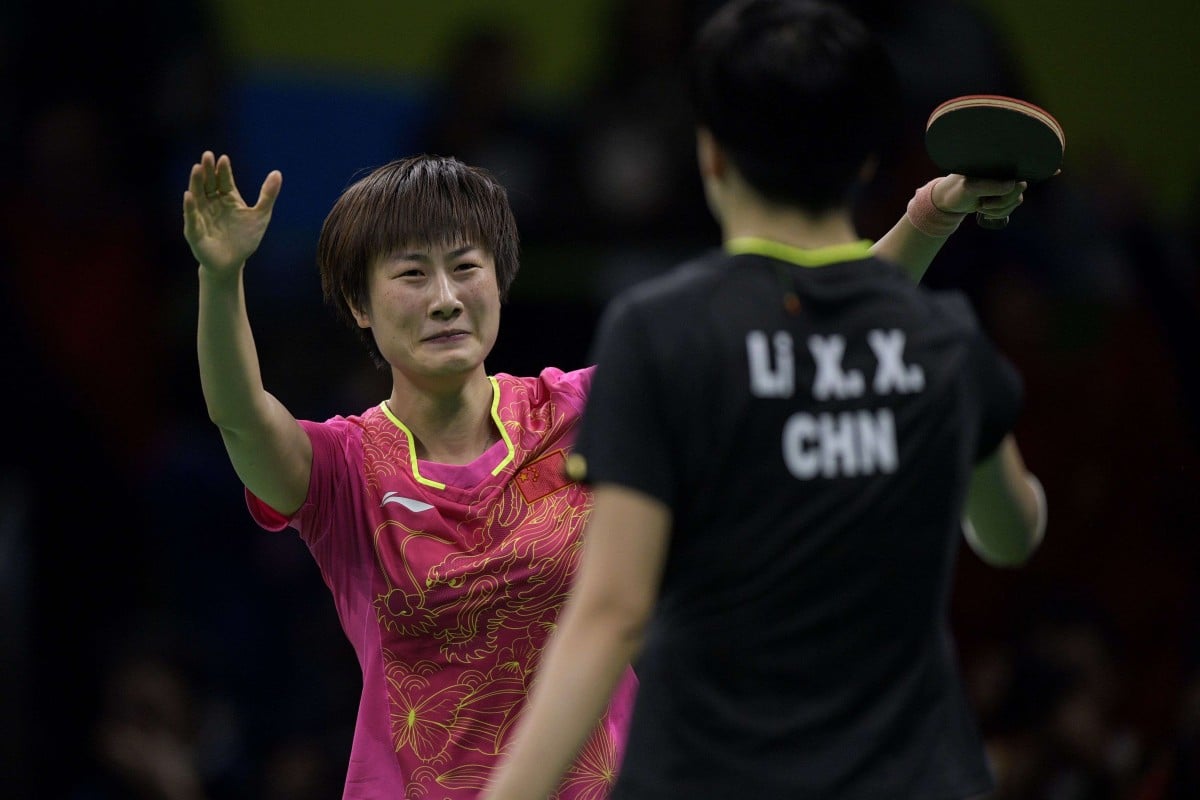
Ding Ning had to put the past behind her, and focus on the match at hand when she once again faced Li Xiao-xia in the final
 Ding Ning (left) cries tears of joy after defeating her compatriot Li Xiaoxia in the gold medal match at the Rio Olympics.
Ding Ning (left) cries tears of joy after defeating her compatriot Li Xiaoxia in the gold medal match at the Rio Olympics. It is never easy to bounce back from defeat – especially one that happened in front of the entire world. But that’s exactly what table tennis player Ding Ning did. The 26-year old from China lost out on a gold medal at the London Olympics four years ago, when she was beaten by world champion Li Xiaoxia.
In Rio, Ding had the chance to redeem herself, when she once again faced Li in the gold medal match.
Ping pong is huge in China, and the national team is always a powerhouse. It’s not a big surprise for both the gold and silver medals to go to Chinese players. These kind of final matches are especially tough, as players must go head-to-head against teammates they know and respect.
“I didn’t think too much after hearing that Li Xiaoxia, my former opponent in the final in the London Olympics, would be my opponent again in the final in Rio,” said Ding. In the London Olympics, Ding lost 4-1 in the final, bringing home a silver medal.
The big game in 2012 is not a happy memory for Ding. She was penalised twice for not throwing the ball vertically; these judgements were later held to have been wrongly called but the final result had already been announced. In world-class competitions, one or two points can change the result.
It was a tough loss, but Ding knew that she would have to forget the past and focus on Rio. The two players are closely matched, so handling the stress of the moment becomes even more important. “I craved the gold medal, but I had to stay stable and put all my effort into the process instead of the result,” Ding says.
To win a table tennis match, a player has to win four out of seven sets. After the fifth set in the final in Rio, Li had won three sets while Ding had won two. If Li won the next set, Ding would become the silver medallist again.
Ding opened the crucial sixth set by scoring three straight points. Li fought bravely, but Ding took the set 11-7.
In the deciding set, Ding once again opened with three straight points.
Li, hoping to disrupt Ding’s flow, called a time-out. After the break, Li tied things up, but soon Ding took a 7-4 lead.
Li seemed to struggle from that point, and with the score 10-7, she called for another time-out, but it proved futile. On the next serve, Li hit the ball out of bounds, and Ding won the gold medal.
In that magical moment of victory, Ding fell to her knees and burst into tears.
After the match, Ding praised her rival. “Though we were opponents in the table tennis court, we are on the same team,” Ding said. “Xiaoxia is the leader of the team, and she has experienced a lot of pain from intensive practice. Despite all of that, she has remained very strong. I have learned a lot from her.”
When asked about the possibility of taking part in the 2020 Tokyo Olympics, Ding said: “I don’t have any plans right now as the Rio Olympics has just ended. In the future, I will figure things out.”